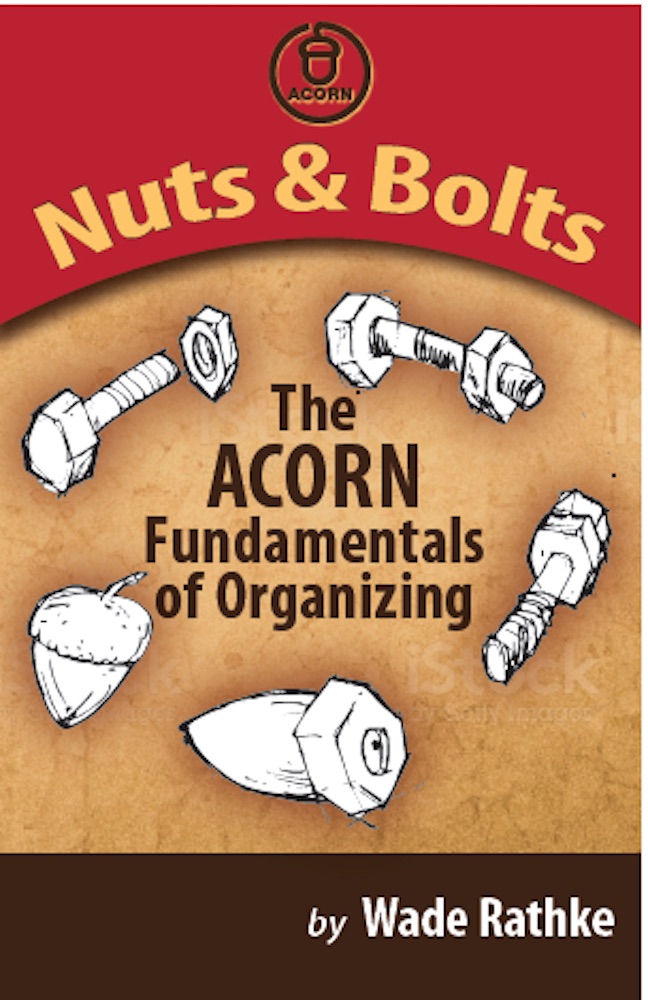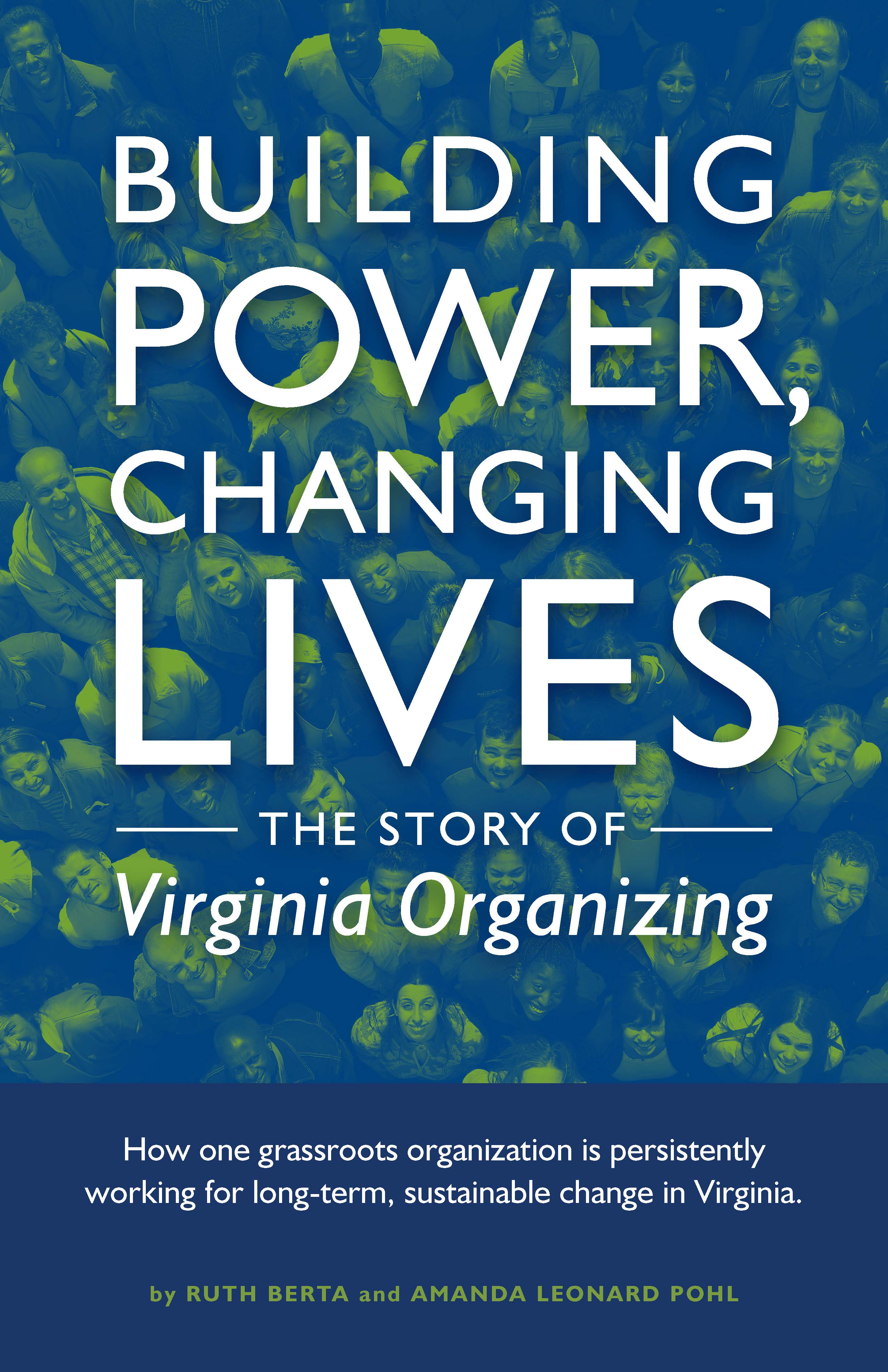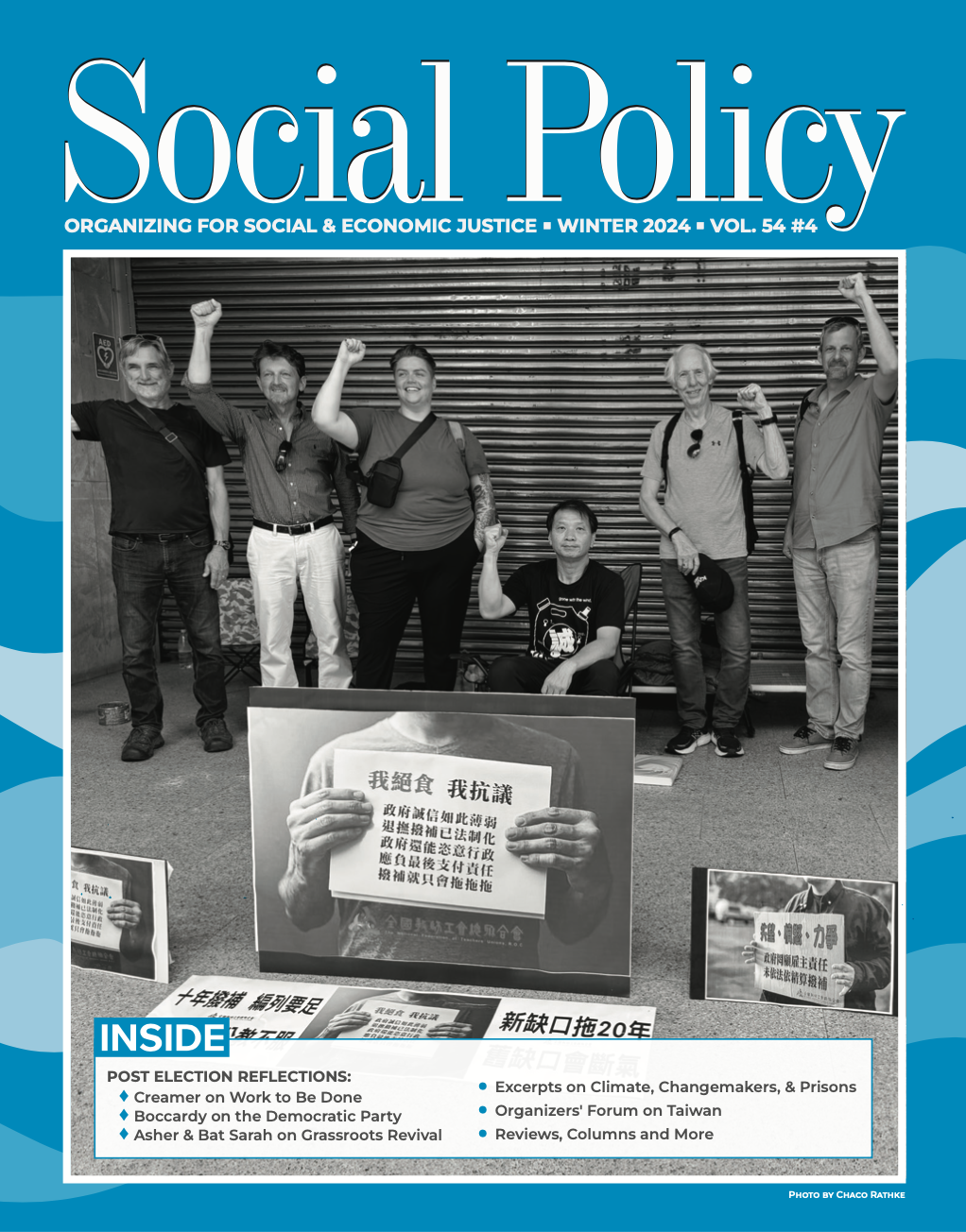The Way Forward
Written by Robert Creamer
The Problem
Much has been written since the Democratic defeat in the November elections. Some attribute the outcome to the millions spent by a few billionaires; others to the deluge of misinformation. Some to sexism and racism. All of these played some role. But the most important factor was a feeling by many ordinary Americans that “the system” and the American economy were not delivering for them.
In NBC’s exit polls, 68% of those who voted said the economy was not too good or poor; 58% said inflation had caused their family moderate or severe hardship. And 73% were dissatisfied or angry at the direction of the country.
This is true even though the economic indicators like unemployment and jobs created were quite robust. But economic indicators do not persuade voters that the economy is good or bad. To a given voter, the “economy” is their economy. And if you try to convince them to the contrary, they simply think you are out of touch with their lives.
Since the early 1980’s an increasing number of Americans have come to believe that their prospects – and the prospects of their children – are not as good as those of their parent’s generation. And this is true even though the United States is the richest country in the world at the richest time in history. How can that be true? It is true because since about 1973 economic inequality in America – and much of the Western world – has skyrocketed.
From the early 1940’s until about 1973, incomes in the United States rose for most Americans, but they rose faster for ordinary people than they did for the wealthy. That period is referred to by economists as the Great Compression. Beginning in 1973 that changed. Since that time, incomes for the wealthy increased at a greater rate than those for ordinary working people. As technology increased productivity per hour, public policy allowed most of those gains to be captured by investors rather than workers and that trend has continued to this day. This has been a world-wide trend. According to the International Monetary Fund (IMF), the labor share of income has been steadily declining since 2000. “Over the past four decades, the earnings of the top 1 percent and 0.1 percent increased 158 percent and 341 percent, respectively. While economy-wide productivity rose almost 70 percent, hourly compensation for typical workers increased less than 12 percent.”
Today, in America, three families control as much wealth as the bottom 50% of the population. More and more of every dollar goes to pay investors rather than workers. As a result, the 60% of the population that makes less than $100,000 per year gets a smaller and smaller percentage of our growing gross national product. The Average CEO of S&P 500 Companies Made 399 Times as Much as the Average Worker.
Tax policies are heavily to blame. We now have a tax system where many billionaires pay a much smaller percentage of their incomes in taxes than their secretaries or the janitors who clean their buildings. Anti-union companies and laws have cut the percent of the work force represented by labor unions. According to the Bureau of Labor Statistics only 11.2% of the work force is represented by a union today – down from a high of about 33% in the 1950’s.
Trade policies are another factor. The voters in the factory towns of the industrial heartland have been drained of jobs by unfavorable trade deals.
Finally, many working-class people feel disrespected by what they consider the college-educated costal elites.
In the November elections many of those voters blamed the incumbent party for their economic struggles and saw Trump as someone who would blow up that system.
In fact, of course, Donald Trump will do everything in his power during his administration to benefit himself and his billionaire friends and backers. But Donald Trump is a talented con artist, and he managed to morph his own grievances into the grievances of ordinary Americans – many of whom thought Democrats were trying to defend the very institutions they believed were causing their economic pain.
Most Americans support progressive policies – like raising taxes on the wealthiest Americans, health care for all, support for childcare, paid medical and family leave, raising the minimum wage, the child tax credit, free or affordable higher education and trade schools, public education, and stronger unions. They also support gun violence prevention laws, freedom of reproductive choice and other critical social issues.
But to win back the votes of most working-class Americans, Democrats and progressives need to convince them that the Democratic Party and progressive movement is solidly on their side, is fighting for their future, and that if they join forces together with Democrats and progressives, they can win a better life.
The Plan
I believe we have eleven priorities over the next four years – and especially the next two leading to the Mid-Term Elections:
1.) Hardening democratic institutions against the coming right-wing attack.
Over the next two months progressives must work with the Biden Administration and Congress to:
- Confirm judges. We must fill every available vacancy – both to put good judges in place and to prevent Trump from filling them with his acolytes.
- Executive Actions. We must also try to assure that money allocated to the priorities of the Biden administration and Congress are obligated using procedures that minimize the ability of Trump’s appointees to “claw back” investments in climate change, infrastructure and other critical priorities. And we must do everything we can to make certain that Executive Orders and Regulations put in place by the Biden Administration are as hard as possible to revoke.
- Sole Launch Authority. To protect the world from ultimate harm, we should work with the White House to alter the procedures that currently allow the President – one person, acting alone – to launch a nuclear attack. The new procedures should include a requirement of sign-off by a group of defense and diplomatic officials. A change to the current procedures for sole-launch authority are necessary in any case, but they are critically important when the nuclear codes are being handed to someone as mentally unhinged as President-elect Trump.
2.) Messaging: Progressives must lead with the economy – with a sharp populist frame.
We must focus not only on the economic pain of large portions of ordinary Americans, but also the causes of that pain – economic inequality promoted by giant corporations and the billionaire class.
The antagonist in our overarching narrative should be Donald Trump and his billionaire supporters. The protagonist should be ordinary voters – and especially working people – and their Democratic supporters. Messaging regarding every economic battle with the Republicans in the years ahead should be framed to support that narrative.
The Democratic economic record with respect to job creation or unemployment should not be used in an attempt to convince voters they are – or were – better off with Democratics in charge than they thought they were. Instead, it should be used as examples of how Democrats and progressives are fighting hand in hand with them to create a better life for all Americans, and opposing Trump and his billionaire friends who want to take more and more for themselves at the expense of everyone else.
Above all, when it comes to economic issues – and all other issues as well – we must intently communicate that progressives and Democrats are on the side of working people – and NEVER blame working people for their own problems or disparage them for their views or their past votes.
When it comes to immigration and other social issues that demonize “the other,” we must constantly remind voters that they are being used by Trump and his billionaire friends to divide working people and to divert attention from the real culprits that take money from their pockets and prevent them from achieving their own aspirations and goals.
And we must use communicate in ways that avoid the abstract and make the battles we fight concrete and real to ordinary people. To do so we must remember four important principles of great political communication:
- As the poet Maya Angelou wrote: “They will forget what you say, they will forget what you do, they won’t forget how you make them feel.”
- The most important thing to remember when it comes to persuasion in politics is that it’s more like a love affair with the voters than an exercise in “rational decision making”. Just as in a love affair, more than anything else, the voters look for qualities in a candidate that make them feel good about themselves. We need to make people feel empowered, respected and that they have a significant role to play in a larger movement to improve their lives.
- The fight’s the thing. If you want a message to break through – have a fight about it that will clearly define the protagonist and antagonist in the narrative.
- Tell stories. Most people don’t experience life through abstract numbers or broad statements. They experience life through real human interactions and stories about those interactions that make issues real, concrete and resonant.
3). Using the Economic Battles Ahead to Drive Our Narrative
We must use the battles we face as opportunities to drive our narrative and engage and mobilize thousands of working people. And we must remember, they are not just “messaging” opportunities – they are organizing opportunities. The best way to “convince” someone that we are on their side is to put them in motion – to go into battle arm in arm. These will likely include:
- The battle to stop Trump from extending his tax breaks for millionaires and billionaires. This battle will happen early next year. Polling shows that these tax breaks are massively unpopular with working people of all kinds.
- If Trump and the Republicans dare to try once again to repeal the ACA it must be fought tooth and nail as an attempt to take away our health care in order to give tax cuts to billionaires. We must use it to mobilize millions of people the same way we did that last time they failed to repeal the ACA.
- Fight any attempt by the Administration to revoke the ability of Medicare to negotiate drug prices with Big Pharma.
- Fight any attempt to cut Social Security, Medicare or Medicaid.
- Fights to prevent the de-regulation of big business.
- The fight to defend public education from assaults from the right.
- Battles to promote progressive economic priorities. While it is easier to organize around things someone wants to take away than something to which we aspire – and while the odds of victory are long, as long as Trump is President – we should run campaigns to strengthen union rights, raise the minimum wage, expand the child tax credit, give resources to families to make child care affordable, expand social security and health care coverage, and raise taxes on millionaires and billionaires. These battles will help us define who is on the side of working people – and the progressive vision for the future.
4). Standing Firm to Protect the Most Vulnerable from Harm
Progressives must simultaneously maintain our clear commitment to protect those who are most vulnerable, targets of persecution or “othering” by the right: immigrants, women who are victimized by attempts to take away their reproductive freedom, the LGBTQ community, and people of color. And we must stand up unapologetically against Islamophobia and Anti-Semitism.
Immigrants have been systematically demonized by Trump and the MAGA. Progressives must fight mass deportation and the destruction of families by making these battles personal – by focusing on the people who are the targets and making them real. We must also make alliances with businesses who will be harmed by attacks on the immigrant community and more conservative religious groups who care about immigrants both as people and their parishioners.
Most working people don’t despise immigrants. They are very concerned about disorder at the border and illegal immigration because it gives them a sense that things are out of control. Progressives should support the allocation of more resources for immigration courts to speed the disposition of asylum claims, more border control agents, and more economic assistance to Central American countries where economic conditions turn citizens into migrants. We should strongly support policies like work permits for families that include citizens and undocumented immigrants who have been in the country for many years – such as the Executive Action taken by President Biden earlier this year. And we should support comprehensive immigration reform with a pathway to citizenship for undocumented immigrants. Not only are they the right things to do, but they are also extremely popular with the broad electorate.
Reproductive Freedom. The Trump MAGA forces will almost certainly attempt to strip way abortion rights and reproductive freedom from millions of additional Americans in the years ahead. It goes without saying that these efforts must be resisted with all our might. Not only are these rights critical to millions of American women and men, reproductive freedom continues to be one of the most powerful messaging weapons in our arsenal.
The LGBTQ Community. Attacks on the LGBTQ community – and especially the transgender community – were particularly virulent in the past campaign. Progressives cannot give any ground on insisting that everyone deserves to live life as the person they actually wish to be. As Tim Walz put it, your family and your life isn’t anyone else’s damn business.
5). Defending Democracy
Trump will do everything in his power to consolidate power, eliminate other bases of power and act as an autocrat. He will also take actions to limit the ability to vote. We must do everything in our power to stop him. Already we have been successful at stopping the nomination of Matt Gaetz for Attorney General. Now we must fight to stop nominations like Tulsi Gabbard to head national intelligence, Kash Patel to be head of the FBI, and RFK Jr. to be head of HHS. And of course, major battles to prevent the confirmation of new right-wing appointees to the Supreme Court.
6). Other Major Issue Battles
Gun Violence Prevention. Gun Violence Prevention proposals remain enormously popular throughout the population—including among gun owners. Most receive support from 65% to 90% of the voters. We should remember that the problems with gun violence are mainly related to the fact that the United States is flooded with guns – 17 times more per capita than the rest of the world. This issue is especially important to young voters.
The Trump Administration will likely try to eliminate or undercut measures that have recently been put in place by Congress and the Administration. They will likely try to defund federal gun crime enforcement and eliminate programs to limit the export of guns to Central and South America that arm gangs that terrorize ordinary people and drive them to seek refuge as immigrants to the United States. Those attempts should be fought with all the tools available.
At the same time, major emphasis on the gun violence prevention battle should be placed on state and local governments.
Climate. The Trump Administration and Republicans in Congress will do everything thing they can to reverse long lists of investments that the Biden Administration and Democratic Congress have made to limit climate change – from incentives for renewable energy production to high-speed rail. Progressives should frame these battles as what they are: attempts by Big Oil and billionaire investors to make millions at the expense of everyone else on the planet. Politically, climate change remains an extremely powerful issue – especially with young people.
Foreign Policy. Between now and the Inauguration much could change in the Middle East and Ukraine War. Already the Biden Administration has been successful at negotiating a cease fire in the war between Hezbollah and the Israelis. In the Middle East, Bibi Netanyahu is, of course, thrilled by Trump’s reelection. Trump will likely give him a green light to annex the West Bank and flatten Gaza. It is possible that Netanyahu could try to draw the United States into a war with Iran. That would be a tragedy for America and the people of the region, and there is no appetite in the U.S. for sending U.S. soldiers to participate in another war in the Middle East. Progressives should strongly oppose Trump’s Middle East policy that could become an important flash point over the next four years.
When it comes to Ukraine, it is likely that the new administration will seriously cut back or eliminate our support for Kiev and try to force Ukraine to cede key territory to Putin. Progressives should continue to support Ukraine and stand up for democracy. We should also use this issue to emphasize the fact that Trump aspires to be an autocrat like Vladimir Putin.
7). Emphasis on State and Local
In many of these issue campaigns, we need to focus heavily on mobilizing our allies in government at the state and local level – Governors, legislators and especially Attorneys General.
For instance, state Attorneys General can keep alive anti-monopoly lawsuits that have been filed jointly by states and the Federal Department of Justice, even if the new Department of Justice wants them dropped. Democratic legislatures and Governors can use their power – including the power to command the State National Guard – to limit abuses of power by Trump. And local prosecutors can hold public officials accountable, even if the Federal Department of Justice will not.
8). Progressive Unity
It is critical that we do everything in our power to avoid the creation of a circular firing squad looking for other progressives to blame for the Democratic defeat.
That goes double for the battles ahead. Our goal must be to keep our forces united and avoid internal criticism to every extent possible.
9). Vision
One of the ways to avoid division is to look forward. We can learn from the past, but we can’t change it. We maintain unity if we project a vision for the future.
We will not attract working class voters – or anyone else—with tests of progressive “purity” or retribution for past sins. And though we need to do battle to stop Trump from taking away our freedoms, rights and economic opportunity, we also need to project our vision of the future.
As Yogi Bera once said: “If you don’t know where you’re going, any road will take you there.”
10.) Organizing
To win back the support of working-class voters it is critical that Democrats and progressives invest heavily in old fashioned organizing in the factory towns of middle America and other heavily working-class communities across the country. This is true of working-class communities of every racial group – including black, Hispanic and white.
Organizing is especially important because our task is not to “convince” working class voters to support “us.” It is to empower working class voters to join with us and make change that improves their lives. That requires community organizing, political organizing and most especially union organizing.
That in turn will require investments from progressive groups, and donors. It will also require active, organized support for union organizing efforts – whether they be at Amazon, or foreign owned auto plants, or the local Starbucks.
Unions provide three critical ingredients to progressive success that cannot be provided by anyone else:
- They concretely increase the share of the economic pie going to workers and their families.
- They provide a vehicle for working class people to form bonds, battle hand in hand with their neighbors – and take on the real antagonist in the narrative: the giant corporations and billionaires who are daily robbing them of the fruits of their own labor.
- They provide a strong organizational lever to actually impact the outcome of elections by serving as trusted messengers for other working-class voters – and a means to organize at every level for electoral victory.
And whether it is unions or other community or advocacy organizations, organizing provides another invaluable ingredient to progressive victory – the feeling of empowerment that is essential to fuel the movement for progressive change.
Another critical organizing priority deals with the Democratic Party apparatus itself.
Relationship building, personal contact, phone calling and door to door canvassing are absolutely essential to long term political success. In the last election Democrats lost half as many voters in the swing states where we had robust door to door and phone operations than we did in states where we did not. Tens of thousands of volunteers worked tirelessly to turn out the vote in the weeks before the election. But permanent organization building that makes field operations and organizing a full-time enterprise is the ultimate true game changer.
The Democratic Party must have a presence in working class communities year-round. It should make as a priority that every precinct in America has a precinct committeeperson – along with assistant precinct committee people – whose job it is to regularly reach out to and engage their neighbors.
They should distribute literature to their voters on a regular basis. They should convene coffees of their neighbors on a regular basis. They should get to know who among their neighbors are stalwart Democrats, which ones are persuadable voters, and which ones would vote Democratic, but are unlikely to vote unless they are mobilized. And they should work together to develop and execute strategies to engage, persuade or mobilize each of these groups.
And all of this should happen all year, every year.
As my colleague Mike Lux has pointed out:
“Democrats need to get over the idea that they will do well in these places just by showing up with field staff and sending doorknockers the last few weeks of the campaign. We need local institutions that build solidarity and create networks of trusted people that can talk politics with folks. That kind of organizing in blue collar neighborhoods, in small and medium sized towns, is going to be critical.”
We cannot leave it to gun clubs and right-wing mega-churches to provide the social fabric around which people develop relationships in working class communities. We must help organize community organizations, advocacy groups, Democratic clubs and unions that allow them to become empowered and join with us to create the future.
11). Messengers and Media
The issue of trusted messengers also extends to the media through which people get information about politics.
Many local newspapers are gone. Many communities now exist in media bubbles where the only access to opinion and information comes from right wing sources like Fox or Sinclair media.
A major source of political commentary and news is now social media.
Progressives have developed a massive network of social media organizers, influencers and leaders. Those sources must be expanded and funded much more heavily.
In addition, we must intentionally help local trusted progressive social media leaders to develop larger and larger followings all over the country.
Talk radio and podcasts are other areas where we could massively expand the role of trusted progressive voices. The right wing has come to dominate both of these spaces in many working-class communities – and especially white working-class communities. There are many progressive talk show hosts who explicitly address the needs and interests of working people in communities of color. There are a few, like the talk show host Rick Smith, with special appeal in white working-class communities.
Progressive donors, unions and the Democratic Party must invest in the massive, rapid expansion of these radio and podcast apparatus for trusted progressive messengers in all working-class communities if we are to be successful.
Conclusion
In 2019, the historian Jon Meacham wrote a book called The Soul of America: The Struggle for Our Better Angels. In the promotional material for the book, it notes that “He writes about the Civil War, Reconstruction, and the birth of the Lost Cause; the backlash against immigrants in the First World War and the resurgence of the Ku Klux Klan in the 1920s; the fight for women’s rights; the demagoguery of Huey Long and Father Coughlin and the isolationist work of America First in the years before World War II; the anti-Communist witch-hunts led by Senator Joseph McCarthy; and Lyndon Johnson’s crusade against Jim Crow. Each of these episodes in our national life have been shaped by the contest to lead the country to look forward rather than back, to assert hope over fear—a struggle that continues even now.”
“While the American story has not always—or even often—been heroic, we have been sustained by a belief in progress even in the gloomiest of times. In this inspiring book, Meacham reassures us, “The good news is that we have come through such darkness before”—as, time and again, Lincoln’s better angels have found a way to prevail.”
Now, it’s our turn to continue the battle for America’s better angels. Together, we can win.
Robert Creamer of Democracy Partners has been a long time community and political organizer. His recent book: Nuts and Bolts: The Formula for Progressive Electoral Success is available from Strong Arm Press (https://bookshop.org/shop/Strongarmpress)











